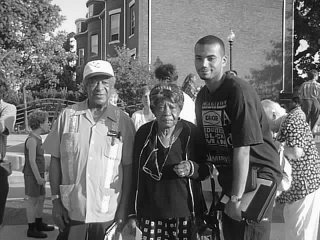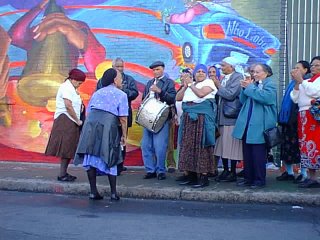Affordable housing by any means necessary

The New York Times reports that Venezuelan President Hugo Chávez is supporting extraordinary measures designed to address his country's acute housing problems. In a September 3, 2006 article entitled Caracas Mayor Lays Claim to Golf Links to House Poor, Simon Romero writes:
No place in this country symbolizes the resilience of Venezuela’s moneyed elite more than the Caracas Country Club (shown in above photo), a bastion of tropical luxury from the 1920’s, conceived in part for foreign oilmen and designed by American landscape architects who invoked the feeling of a vast coffee plantation.
So imagine the reactions in Caracas, a city choked by shantytowns and traffic congestion, when the mayor ordered the “forced acquisition” this week of the club’s 18-hole golf course, and another exclusive course near the United States Embassy, to make way for homes for as many as 11,500 poor families.
“We’ve done studies that show that 20 families survive for a week on what’s needed to maintain each square meter of grass on a golf course,” said Juan Barreto, the mayor and a close ally of President Hugo Chávez. “Their use is private and benefits certain sectors which are not the middle class or the poor.” Read the entire New York Times article here. For another perspective check out Venezuelanalyis.com.
Closer to home: the Dudley Street Neighborhood Initiative (DSNI)
From 1995-1999 I had the good fortune to work for The Dudley Street Neighborhood Initiative, a community-based planning and organizing nonprofit in Roxbury, Massachusetts, two miles south of downtown Boston. The Dudley Street neighborhood is a multicultural community of 25,000 Cape Verdean, African-American, Latino, and white residents with one of the highest rates of unemployment and poverty anywhere in the state. It is not an officially designated political unit. The Dudley Street Neighborhood is basically an area defined by devastation and poverty that has been inflicted in a number of ways through the decades including racism, redlining, expolitation by slumlords, arson-for-profit and disinvestment.
The cumulative effect of this devastation was that by 1984 the Dudley Street area had been reduced to 1300 abandoned lots filled with rubble. You could stand in the middle of the one and a half square mile area called the Triangle, and literally turn in all directions and not see a building. It was an absolute wasteland, where once there had been a thriving Irish-Catholic and Jewish community.
Here's how desperate things got: in 1988 the Dudley Street Neighborhood Initiative became the first and to date only grassroots community-based organization to be granted the power of eminent domain over abandoned land within its boundaries. Eminent domain has characteristically been used to gentrify neighboroods and force out the poor. In this case residents, DSNI staff, and a network of incredible allies spanning a variety of disciplines used that power to realize their plans for developing a vibrant urban village.
In 1987 residents developed a comprehensive plan with the assistance of the consulting firm DAC International. That plan laid out the vision for the creation of an urban village. It integrated housing, economic development, delivery of human services, and open-space needs, offering a model for a twenty-first-century village that emphasized local ownership of homes and businesses and that views cultural diversity as a valued asset.
Today over 440 units of new housing have been built, 560 homes renovated and three new community centers constructed in the Dudley Street Neighborhood. The type and location of every single home were determined through a public process. Moreover, the development effort was self-supporting, because ground-lease fees repaid the fair-market cost of land purchased via eminent domain.
For the complete history of this remarkable community's resident-led revitalization read Streets of Hope: The Fall and Rise Of An Urban Neighborhood by Peter Medoff and Holly Sklar. (GW)



0 Comments:
Post a Comment
<< Home